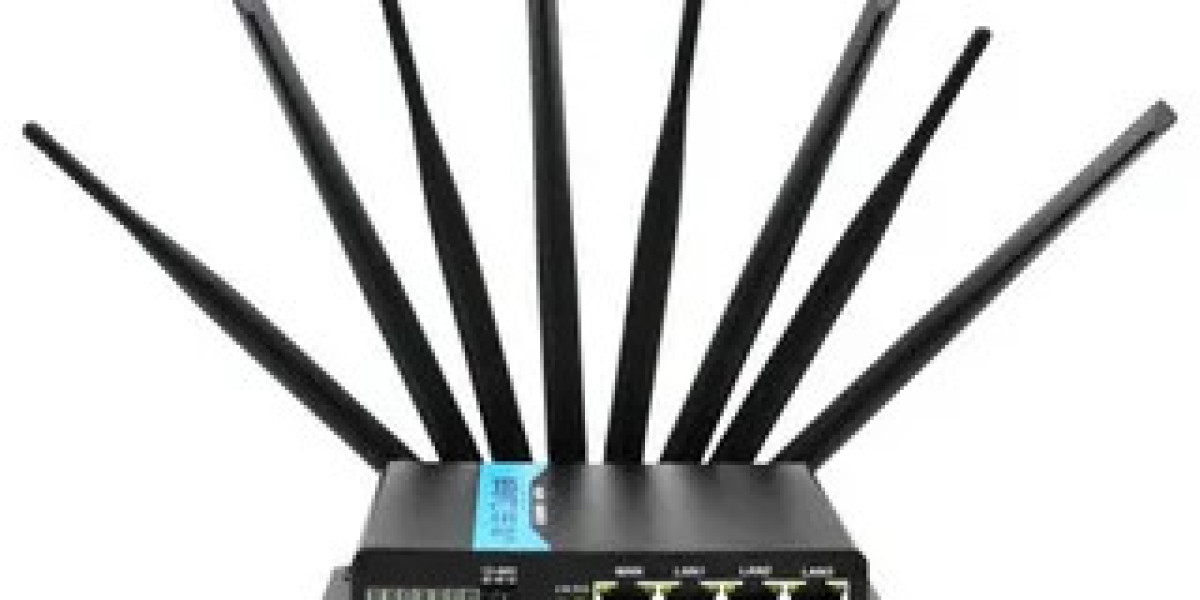Industrial Networking Needs Drive Demand for Specialized Routers
As manufacturing facilities continue to modernize their operations through technologies like IoT, machine learning, and advanced analytics, networking needs have also evolved tremendously. Traditional IT networks no longer suffice in supporting the requirements of industrial applications that demand high reliability, security, and performance even in harsh environments. This has led to rising adoption of industrial routers specifically designed to address these challenges.
Industrial Routers are purpose-built networking devices that can withstand temperature extremes, shock/vibration, moisture, and dust present on the plant floor. Their ruggedized enclosures allow installation in environments inhospitable for standard routers. They offer advanced features like wide operating temperature ranges (-40°C to 75°C), conformal coating on circuit boards for moisture protection, and vibration/shock resistance as per industry standards like IEC 60255 and MIL-STD-810.
Deploying Industrial Networks in Difficult Environments
Many factories have equipment located in areas with ongoing industrial processes making living conditions harsh for typical IT gear. Industrial routers ensure connectivity is maintained even in these difficult conditions through their rugged packaging. Their IP/NEMA protection ratings up to IP67 mean they can withstand being temporarily submerged in water or exposure to pressure-powered dust/debris without damage. This plays a vital role in deploying and managing networks across the entire factory floor including heavy machinery, welding stations, chemical plants, etc.
Carrier-grade features in networking hardware like redundant power supplies, field replaceable/hot-swappable components, and automated failover mechanisms improve network uptime significantly. Industrial routers incorporate these to keep critical automation infrastructure online through component failures or power disruptions with minimal downtime. Uninterrupted operation is a must for many manufacturing processes relying on real-time data from machines, sensors, and controllers.
Enhancing Security in OT Networks
With IT and OT networks converging to enable next-gen technologies, securing industrial control systems from cyberthreats has become paramount. Traditional enterprise routers are not equipped to enforce the robust security policies required for mission-critical manufacturing environments. Industrial routers deliver powerful yet scalable firewalling, access control lists, network segmentation, secure remote management, and other capabilities to guard against exploits and malicious activity targeting plant automation equipment.
Their hardened operating systems are immune to typical vulnerabilities affecting general-purpose devices. Features like port/protocol filtering, VLAN support, endpoint compliance checks help implement sophisticated zero-trust architectures. Integrated role-based authentication systems ensure only authorized personnel can access critical systems. Over-the-air firmware updates allow seamlessly addressing newly discovered threats without disruptions. This military-grade security hardening is essential for protecting industrial automation assets with life/safety implications.
Supporting Real-time Communications
Modern factories increasingly rely on low-latency, high-speed communication between disparate systems for smooth operations. Industrial routers support time-sensitive industrial Ethernet protocols like EtherCAT, PROFINET, POWERLINK in addition to traditional IP. Real-time performance is delivered through advanced hardware architectures optimized for small packet sizes and quick processing.
Strict quality-of-service controls prioritize critical traffic like machine control over other data to avoid latency spikes compromising production quality or equipment performance. High port density accommodates connecting numerous nodes simultaneously without bottlenecks. Industrial Wi-Fi capabilities enable mobility within plants while maintaining determinism through features like TSN support. This ensures data from robot arms, HMIs, sensors etc. is delivered to controllers and management systems as fast as possible for tight coordination across production lines.
Enhancing Analytics Capabilities
Aggregating operational intelligence from industrial systems provides invaluable insights but poses networking challenges. Industrial routers’ powerful CPUs, large memory spaces, and ample storage accommodate sophisticated analytics and big data workloads on the edge. Their high-bandwidth capabilities facilitate real-time data exports to cloud/on-prem solution stacks for AI/ML modeling.
Dual WAN ports allow fallover/load balancing between primary and secondary internet connections, seamlessly integrating remote production and maintenance personnel into digitalization initiatives. Capacities like OpenStack/VMware integration let deploy virtualized analytics environments locally for ultra-low latency computations. Open APIs further assist developing custom applications and dashboards for equipment monitoring, predictive maintenance, product quality management, and more.
Industrial networks have transformed significantly to interface myriad smart machines. As manufacturing digitization accelerates, specialized industrial routers remain a cornerstone—delivering unparalleled reliability, security and real-time performance that conventional IT cannot match. Their future-proofed capabilities ensure advancing technologies like computer vision, augmented reality and digital twins can reach their full potential on the plant floor through robust connectivity.
Get more insights on, Industrial Routers
Get This Report in English Language: Industrial Routers
Get This Report in Japanese Language: 産業用ルーター
Get This Report in Korean Language: 산업용 라우터
About Author:
Ravina Pandya, Content Writer, has a strong foothold in the market research industry. She specializes in writing well-researched articles from different industries, including food and beverages, information and technology, healthcare, chemical and materials, etc. (https://www.linkedin.com/in/ravina-pandya-1a3984191)



